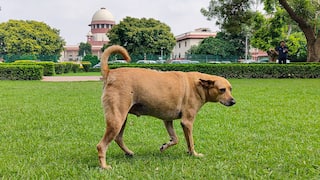Not Sure When To Start Gymming After Recovery From Covid? Here Is What You Should Do
After the body has recovered from the infection, exercising and weight-lifting can be strenuous. Here's what to consider before resuming your sessions at home

New Delhi: The pandemic has wreaked havoc around the world leaving people mentally and physically stressed. It has impacted the health of people from all age groups starting from kids to elderlies who are susceptible to this virus.
Even as people have become more conscious of their health during pandemic, the viral load from the disease has made us conscious of how to deal with the post recovery. A lot of exercise freak and gym enthusiast who have suffered from the disease are still not sure how to resume their fitness programmes fatigue and weakness have been reported in many cases for weeks after recovery.
ALSO READ: 'Single Shot Covid Vaccine Neutralizes Delta Variant, Lasts For 8 Months': Johnson & Johnson
Most recovered patients complain of a lasting sense of fatigue with limited strength to exercise or even perform daily activities with some experiencing muscle pain even after recovery.
After the body has recovered from the infection, exercising and weight-lifting can be strenuous. So if you are wondering how and when to resume your sessions at home here are a few things to consider.
Go slow: Once you are recovered from the disease, you have to keep in mind that you can’t rush into your fitness session. Experts suggest that one should resume exercises slowly because your body is weak. Most importantly, opt for a slow and steady exercise schedule keeping in mind that it doesn’t exhaust your oxygen reserve in the lungs. "Covid patients should not indulge in exercise immediately after recovering. The activities should resume gradually over a period of two to three months," said Dr Ashok Seth, head of cardiology at Fortis Escorts Hospitals at the India vs Corona 3.0 e-Conclave organised by ABP News.
One may get back to routine work at home, but it is always better to start with slow breathing exercises and Pranayam. You may also start brisk walking for 15-30 minutes on alternate days inside your home.
Gyming and intensive workout: Those who enjoy intense workouts with weight-lifting need to be cautious and wait for at least a month or more. Asymptomatic patients also have to be cautious and brisk walking for 15-20 minutes can help you in getting the muscles moving.
It is advised to start with low intensity warm up exercises along with stretches. After a month or two one can look at some lightweight muscle strengthening exercises and push ups only if there is no breathing difficulty, chest discomfort or body fatigue, suggests experts.
Stay hydrated: It is extremely important to stay hydrated and drink plenty of fluids, follow the nutritious diet and get adequate sleep. Soaring temperatures can also be lethal if one doesn't keep himself/herself hydrated throughout the day.
What are recomendations with people suffering from post Covid complications?
According to sports medicine doctors at the Hospital for Special Surgery (HSS) recommendations, people with hematologic or blood symptoms, should start with low-intensity exercises, and suggest less sedentary behavior to help reduce blood clot risks.
Those with prior respiratory symptoms like pneumonia are suggested to rest for at least a week after symptoms fade before resuming any physical activity and tracking their breathing.
For people who have had cardiac, or heart, symptoms, the recommendation is to take a rest for alomost two to thee weeks after the symptoms subside, while those who have myocarditis, or inflammation of the heart, should wait as much as three to six months before returning to some form of an exercise regimen.
Make sure that when you start with your exercise regime take a proper guidance of experts or gym trainer.
Check out below Health Tools-
Calculate Your Body Mass Index ( BMI )
Calculate The Age Through Age Calculator
Related Video
Breaking News: India’s GDP Expected to Grow at 7.4% This Fiscal Year, PM Modi Calls It Positive News





































